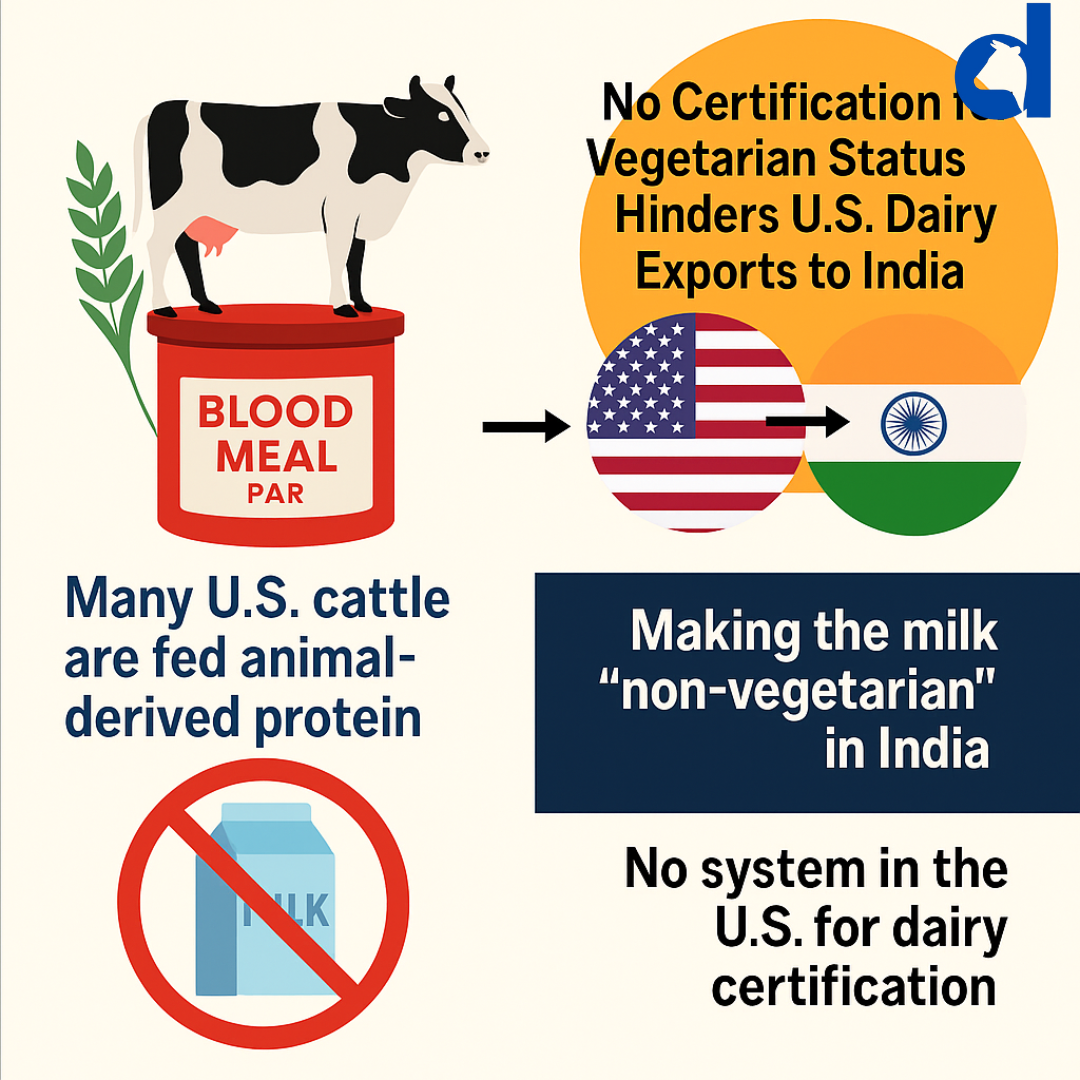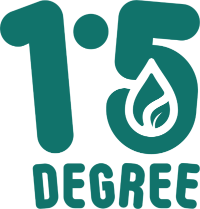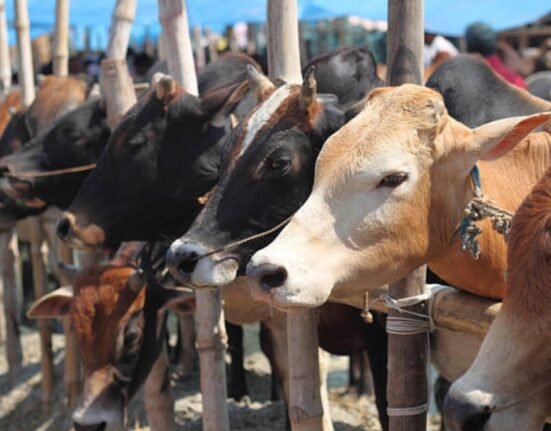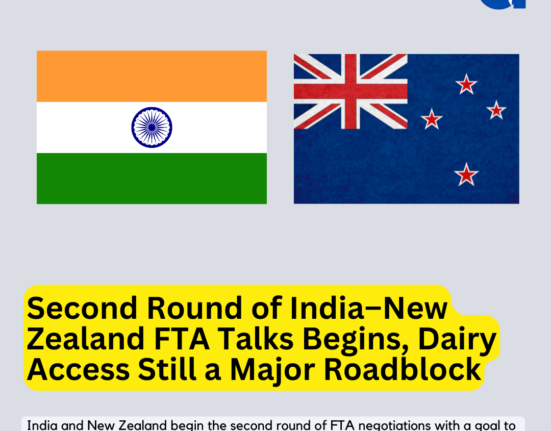As India and the United States continue to negotiate improved agricultural trade relations, one seemingly niche issue has emerged as a recurring roadblock: the classification of U.S. milk as non-vegetarian. While the term might sound unusual in global dairy contexts, it is a highly significant consumer concern in India, where dietary practices are closely tied to religious and cultural beliefs.
At the core of the controversy is the use of animal-derived feed supplements, such as blood meal, bone meal, and tallow, in American dairy cattle diets—practices that render U.S. milk products “non-vegetarian” in the Indian regulatory and consumer framework.
🧪 What Makes Milk “Non-Vegetarian”?
In the Indian context, “vegetarian” is not just about the primary product but also about its entire production chain, especially for products of daily consumption, such as milk. For Indian regulatory and religious standards, dairy must be free from:
- Animal slaughter by-products in cattle feed
- Processing aids derived from animal enzymes
- Any involvement of materials derived from bovine blood, fat, or meat
This becomes especially significant for products like ghee, milk powder, and whey protein, which are increasingly imported for use in nutraceuticals, confectionery, and food processing.
📉 Why U.S. Dairy Is Failing India’s “Vegetarian” Test
According to USDA data and multiple industry estimates, up to 60%–70% of cattle in the U.S. dairy supply chain are fed blood meal, tallow, or animal fat-derived proteins as part of high-efficiency diets. These ingredients are added to:
- Increase protein density in feed
- Lower overall feed cost
- Support rumen health and digestion
This practice is legal and accepted by international food safety standards (e.g., Codex), but it contradicts Indian regulatory and cultural norms. Consequently, India has repeatedly refused to allow imports of U.S. dairy that cannot guarantee a vegetarian origin at every stage.
📜 The Certification Dilemma
One of the most significant technical hurdles is traceability and certification. The U.S. dairy industry does not maintain a segregated supply chain for vegetarian and non-vegetarian feed regimes. This makes it:
- Practically impossible to issue product-specific vegetarian certification
- Difficult for processors to segregate milk from vegetarian-fed cows
- Unfeasible to monitor feed inputs across vast, decentralised farm networks
Even U.S. dairy cooperatives and exporters seeking to cater to the Indian market lack a national certification standard for feed origin compliance, rendering it impossible to meet India’s phytosanitary requirements.
🤝 Trade Implications
This issue has surfaced multiple times in India-U.S. trade dialogues, particularly under bilateral discussions around market access and agricultural reciprocity. While India seeks greater access to U.S. technology and dairy genetics, it remains firm on excluding non-vegetarian dairy imports unless full traceability is assured.
In contrast, the U.S. has criticised India’s stance as non-scientific and protectionist, arguing that international standards do not consider the origin of animal feed or classify dairy as vegetarian or otherwise.
🇮🇳 India’s Position:
- Based on cultural and religious sentiment
- Strong consumer resistance to animal-based inputs
- Supported by local dairy cooperatives and FSSAI
🇺🇸 U.S. Position:
- Calls for science-based trade standards
- Argues that dietary inputs should not affect dairy classification
- Pushes for the removal of non-tariff barriers
🔍 Analytical Take: Why This Issue Persists
| Factor | India | United States |
|---|---|---|
| Feed Origin Traceability | Mandatory for imports | Not practised or documented |
| Consumer Expectations | High religious sensitivity | No such requirement |
| Regulatory Labeling | Vegetarian labeling required | No equivalent classification |
| Supply Chain Segregation | Enforced through certification | Not available or cost-effective |
| Export Adaptability | Requires full compliance | Would involve major restructuring |
The crux of the issue lies in the structural incompatibility between India’s regulatory ecosystem and the U.S. dairy production model. Unless the U.S. establishes a dedicated “vegetarian supply chain,” which would be logistically and economically challenging, the deadlock is likely to persist.
🔮 Outlook: A Market Gap with No Clear Fix
For India, where dairy is both an economic and spiritual staple, importing milk products that don’t meet vegetarian standards is not politically viable, regardless of trade pressure. Until a reliable vegetarian certification system is established by exporters, India will continue to block imports of non-compliant dairy.
On the other hand, domestic demand for whey, protein isolates, and casein—particularly for nutrition and sports segments—is growing. This presents an opportunity for Indian dairies to fill the gap with certified vegetarian alternatives.







